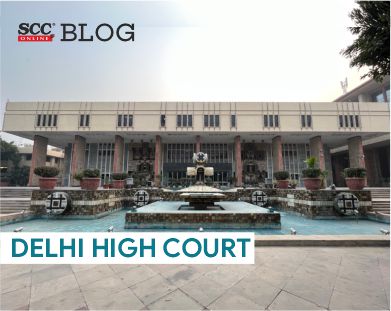Delhi High Court: In an appeal filed by the appellant challenging the judgment of the Trial Court, whereby the appellant was convicted for committing the murder of Yunus (“deceased”) (brother of the wife of the appellant) and causing injury to Afzal (nephew of the wife of the appellant) and challenging the order on sentence whereby the appellant was directed to undergo rigorous imprisonment for life along with fine, a division bench of Mukta Gupta and Poonam A Bamba, JJ., modified the conviction of the appellant from punishment for murder (Section 302 IPC) to punishment for culpable homicide not amounting to murder (Section 304) Part I of IPC).
The appellant, Ahmed Saeed was married to Shahna and for the last ten months, the appellant has not been staying with Shahna and their child at the matrimonial home. Later, Shahna and her minor child lived with her parents in Aurangabad. On 13th February, one neighbor called up Shahna to inform her that the appellant was breaking open the lock of her house. Shahna along with her brother Yunus and Afzal, son of Yunus, reached there and an altercation broke open which led to the death of Yunus and injuries to Afzal.
The appellant was arrested, and the Trial Court directed the appellant to undergo rigorous imprisonment for life along with a fine of ₹1,00,000/- under Section 302 IPC. Aggrieved by this, the present appeal was filed.
The Court noted that the Trial Court failed to appreciate the fact that the alleged offence was not committed by pre-meditation. It is the case of the prosecution itself that when Shahna came to know from the neigbour that her husband was breaking open the lock of the house, she along with her mother, brother and nephew left for Delhi and reached there at about 9.30 p.m.
The Court further noted that at the main gate of the house, the broken kunda was lying hanging and some goods were scattered. They made a call at the 100 number; however, the police did not arrive. The offence did not take place at the house of Shahna but slightly away from there on the road as even Shahna stated that she saw the altercation going on the road. As per the statement of the appellant, he was not found at the house and rather, the complainant and her family came to him.
The Court concluded that the appellant had no knowledge that Shahna and her family members were coming to Delhi, the case of the appellant squarely falls in exception 4 to Section 300 IPC, thereby, the offence alleged against the appellant would fall in the category of one under Section 304-I IPC and not under Section 302 IPC in view of the nature of the weapon of the offence.
Thus, the Court modified the conviction of the appellant from Section 302 IPC to Section 304-I IPC. 23 and as the appellant had undergone a sentence of 10 years 7 months 3 days including remissions, directed the appellant to be released on the period already undergone.
[Ahmed Saeed v. State, 2023 SCC OnLine Del 306, decided on 24-01-2023]
Advocates who appeared in this case :
Mr. Samar Singh Kachwaha, Ms. Shivangi Nanda, Ms. Kavita Vinayak, Ms. Rini Mehra and Mr. Anmol Agarwal, Advocates for the Appellant;
Mr. Laksh Khanna, APP for State with SI Abhishek and Insp. Shailendra Advocate for the Respondent.
*Arunima Bose, Editorial Assistant has reported this brief.






